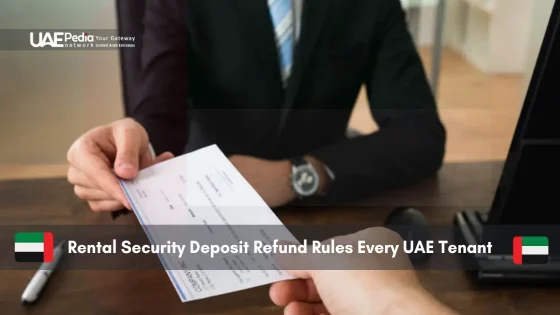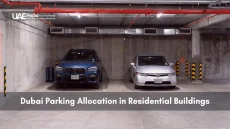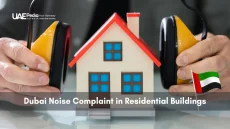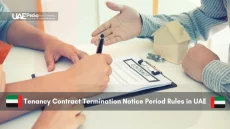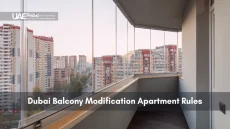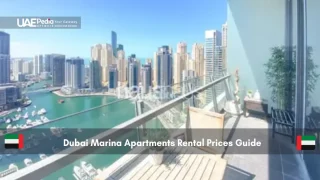Did you know that 65% of UAE tenants overlook a crucial step that could cost them their deposit? Whether you’re settling into a Dubai high-rise or an Abu Dhabi villa, understanding how to protect your funds starts long before moving day.
Think of your initial payment as a safety net—one that requires clear rules and proactive steps to reclaim. Across the Emirates, landlords often hold these funds in interest-bearing accounts, but disputes over unpaid rent or property wear can delay their return. Here’s the good news: a well-documented move-in process—photos, checklists, and timestamps—can turn potential headaches into smooth transitions.
New Yorkers might snap pics of cracked tiles, while Dubai renters track AC efficiency. The principle remains the same: evidence is power. Most refunds here take 14-30 days post-move-out, assuming no disagreements. But as any seasoned tenant knows, “make sure” isn’t just advice—it’s a strategy.
- Snap dated photos of every corner during move-in
- Request a signed checklist from your landlord
- Confirm where your funds are stored (ask about that interest!)
Ready to turn those desert dirhams into a stress-free refund? Let’s map your path.
Understanding Security Deposits and Your Rights
Ever wonder why that upfront payment feels like a centuries-old tradition? From ancient Mesopotamia to modern Dubai, property agreements have always relied on trust—and safeguards. Today’s funds serve both sides: they protect owners from unexpected costs while giving residents skin in the game to maintain their space.
Why Both Sides Win
Think of this arrangement as a shared promise. Owners use these funds to address wear beyond everyday use—like replacing cracked tiles or deep-cleaning carpets. For those leasing, it’s a motivator to treat the property like their own. As one Abu Dhabi homeowner puts it: “Good care means happy returns—for everyone.”
| Landlord Benefits | Tenant Benefits |
|---|---|
| Covers repair costs for damages | Encourages responsible property use |
| Protects against unpaid bills | Full return with proper upkeep |
| Legal safeguard for lease terms | Clear documentation prevents disputes |
Paper Trails Make Perfect
Imagine moving into a Sharjah apartment and spotting a faint scratch on the balcony door. Snap it. Date it. Share it. Detailed checklists and timestamped photos turn “he said, she said” into cold, hard facts. Dubai law even requires owners to provide move-in reports—but savvy residents go further, filming appliance tests and noting existing flaws.
Here’s the kicker: 90% of disagreements vanish when both parties start with the same evidence. Whether you’re in a high-rise or villa, that folder of proof becomes your golden ticket when it’s time to part ways.
Preparing for a Smooth Move-Out Process
Imagine your last day in your Emirates home—keys in hand, sun setting over the skyline, and your full deposit on its way back. That’s the goal, right? Let’s make it happen with two power tools: a foolproof checklist and visual proof that’ll turn skeptics into believers.
Creating a Comprehensive Move-Out Checklist
Start by grabbing your lease—it’s your roadmap. Cross-reference every obligation, from AC servicing to balcony maintenance. Break your list into zones: kitchen appliances, bathroom fixtures, flooring. Pro tip: Tackle one room daily to avoid last-minute panic.
Include deadlines too. Most laws require final inspections within 7-14 days after vacating. Mark these dates like birthdays—miss them, and you risk delays.
| Move-In Documentation | Move-Out Must-Haves |
|---|---|
| Original condition photos | Updated timestamped images |
| Appliance test records | Service receipts for repairs |
| Signed inspection report | Final meter readings |
Documenting Property Condition with Photos and Videos
Your phone’s camera roll becomes your best ally here. Capture every angle under natural light—even that “tiny” chip in the bathroom tile. Videos work wonders for showing appliances in working order. Narrate dates and locations as you film: “May 15th, master bedroom closet door functioning smoothly.”
Store everything in a dedicated cloud account labeled “Move-Out Proof.” Share this folder with your landlord during the final walkthrough. When both sides see the same property snapshots, disagreements fade faster than desert mirages.
Your Guide to Rental Security Deposit Refund Rules
Picture this: you’ve just handed over your keys, but instead of goodbye tension, there’s mutual respect. That’s the magic of mastering the refund dance. Let’s break it down like a pro.
Your Roadmap to Success
Start by scheduling your final walk-through before moving day. Bring your original move-in photos—that faint coffee stain? Show how it hasn’t worsened. Landlords appreciate thoroughness. One Dubai tenant shared: “When I pointed out we’d actually improved the patio tiles, he smiled and approved everything.”
Next, tackle any needed repairs yourself if cheaper than deductions. Changed a light fixture? Keep receipts. Remember: normal wear isn’t deductible—only damages beyond the property’s original condition.
Talk It Out Like a Local
If disagreements arise, lead with curiosity: “Could we review the before photos together?” Most Emirates landlords value respectful dialogue. Need backup? Request a certified letter outlining your rights under local law.
Timing matters. Funds typically return within 14-30 days. Mark your calendar—if day 31 arrives, send a polite follow-up. Always confirm your money’s in a separate bank account. As legal advisor Amal Khalid notes: “Mixed accounts complicate refunds. Ask for proof upfront.”
| Your Action | Their Responsibility |
|---|---|
| Provide repair receipts | Return funds within agreed time |
| Share updated condition proof | Explain deductions clearly |
| Confirm bank details | Store deposit properly |
Stuck on costs? Negotiate. Maybe split deep-cleaning fees 50/50. Keep it friendly: “What solution works for both of us?” When you know your rights and communicate them calmly, even tricky talks become stepping stones.
Navigating Local and State Security Deposit Laws
Ever tried explaining sand dunes to someone who’s only seen snow? That’s what comparing global property regulations feels like. While New York caps deposits at one month’s rent and demands refunds in 14 days, the UAE leans toward 30-day timelines—but with fewer hard limits. Here’s how to chart these shifting sands.
When East Meets West in Property Rules
In Jersey City, landlords must provide itemized deductions within 30 days or face penalties. Dubai? No strict deadlines, but courts favor tenants who keep thorough records. “Normal wear tear” here might mean sun-faded curtains in Abu Dhabi versus worn carpeting in Manhattan—both expected, but interpreted differently.
| Region | Deposit Limit | Refund Deadline | Evidence Rules |
|---|---|---|---|
| UAE | No fixed cap | 30 days (common) | Photos + receipts |
| New York | 1 month’s rent | 14 days | Written notice required |
| New Jersey | 1.5 months’ rent | 30 days | Deduction receipts mandatory |
Timing Is Everything
Miss a deadline? In Newark, you could sue for double the withheld amount. Emirates courts prefer mediation first—but still track timelines. One tenant in Sharjah won her case by showing timestamped messages proving her landlord missed the 45-day notice window.
Keep repair receipts like they’re golden tickets. When a Dubai high-rise tried charging for pre-existing AC issues, the tenant’s move-in video saved her AED 3,500. As legal advisor Layla Al-Mansoori notes: “Your phone holds more power than any contract clause.”
If talks stall, small claims court becomes your backup. Emirates cases often resolve faster than US equivalents—sometimes in weeks. Just remember: judges here want paperwork, not passion. Present your timeline, snapshots, and communication records like a pro.
Strategies to Prevent Unfair Deductions and Withholding
What if your final walkthrough felt like a victory lap instead of a negotiation? Smart tenants turn potential conflicts into smooth handovers by knowing exactly where lines get drawn. Let’s decode the art of fair play in property transitions.
Identifying What Can and Cannot Be Deducted
Start by separating everyday living from actual damage. Faded paint from desert sun? Expected. A fist-sized hole in the drywall? That’s on you. Landlords can only claim costs for issues beyond normal wear—think stained carpets needing replacement, not light scuffs.
| Allowed Deductions | Contested Charges |
|---|---|
| Broken window panes | Minor wall scratches |
| Missing appliances | Faded curtains |
| Unpaid utility bills | Dusty AC filters |
Pro tip: Compare move-in/move-out photos side-by-side during inspections. One Dubai resident avoided AED 800 charges by proving balcony cracks existed beforehand. As property expert Rashid Al-Farsi advises: “Disputes dissolve when evidence speaks louder than opinions.”
- Challenge any deduction exceeding one month rent—it’s often unenforceable
- Demand invoices for repairs—generic “cleaning fees” don’t cut it
- Escalate politely if funds aren’t returned within days post-agreement
Keep communication documented. A simple “Per our walkthrough, I’ll await the refund by Thursday” email creates accountability. Remember: Your initial payment should cover only legitimate costs—not become a bargaining chip.
Wrapping Up: Secure Your Security Deposit with Confidence
You’ve packed your memories, but what about your funds? Reclaiming what’s yours starts with three essentials: documentation, dialogue, and deadlines. Always request a detailed breakdown of charges—your timestamped photos and repair receipts make disagreements vanish faster than desert rain.
Local guidelines suggest expecting your money within days after vacating, provided your final payment aligns with month rent terms. Gather your move-in proof like a treasure map—every email, checklist, and snapshot matters. If delays occur, deposit laws empower you to escalate through small claims channels. Courts here favor organized tenants—your folder of proof becomes your strongest advocate.
Walk forward knowing you’ve mastered the system. With every click of your camera and signed checklist, you’re not just protecting dirhams—you’re building confidence to thrive in your next UAE chapter.
Both emirates require landlords to hold funds in regulated accounts, but timelines differ. Dubai typically allows 14 days post-move-out for refunds, while Abu Dhabi extends to 30 days. Always check your Ejari (Dubai) or Tawtheeq (Abu Dhabi) contract for specifics.
Only if damage exceeds normal wear—like graffiti or unapproved color changes. Faded paint from sunlight? That’s the owner’s responsibility. Request repair receipts to challenge unfair charges.
Snap timestamped photos of cleaned spaces, functioning appliances, and intact fixtures. Video walkthroughs with your agent work wonders. Bonus tip: Capture the AC remote’s condition—it’s a frequent dispute!
First, send a polite reminder via registered mail. No response? File a case through the Rental Dispute Settlement Center (RDSC). Dubai’s RDSC app lets you track claims like an Amazon delivery!
Yes! Northern emirates often cap deposits at 5% of annual rent versus Dubai’s 5-10%. Some Fujairah landlords still request post-dated cheques—know your rights under each emirate’s tenancy law.
Absolutely not. Cosmetic upgrades fall on owners unless you caused chips or cracks. Pro tip: Note existing imperfections in your initial inspection report—even scribble notes on the margin.
